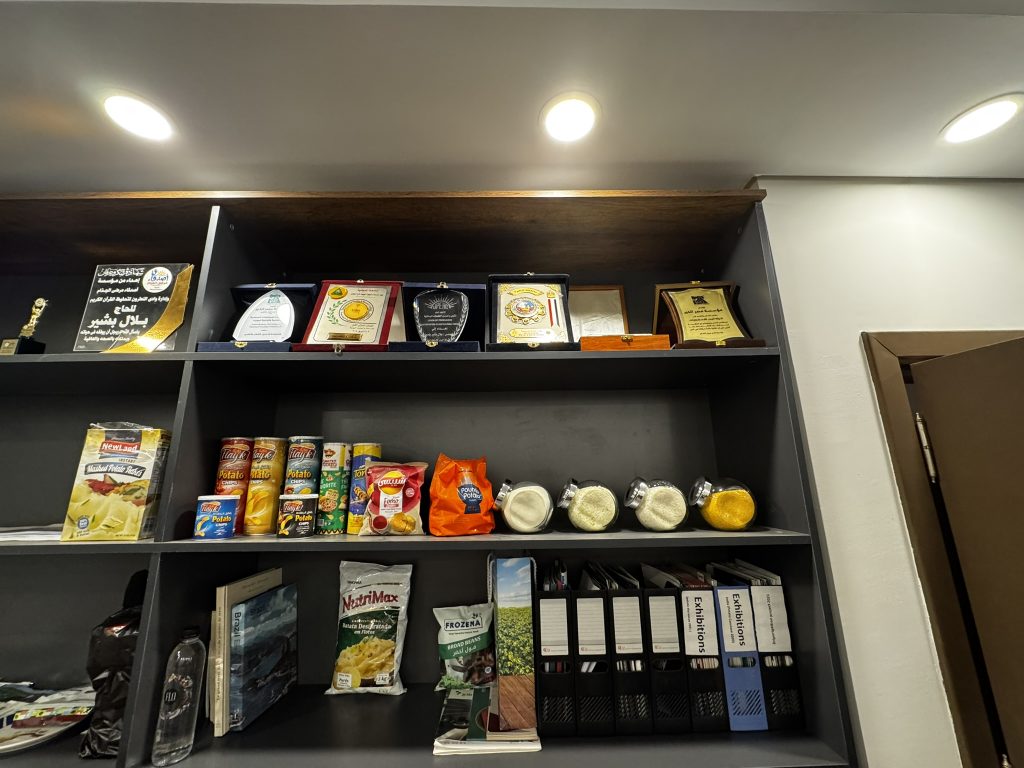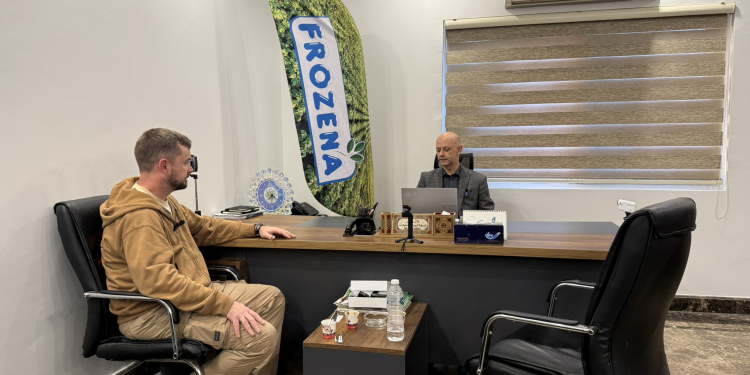
Viktor Kovalev (Founder of POTATOES NEWS):
Hello, Bilal! Thank you for taking the time for this interview. How are you doing?
Bilal Yasin (CEO of Frozena Foods):
Hello, Viktor! I’m doing great, happy to talk with you. My name is Bilal Yasin, and I’m the CEO of Frozena Foods. We’ve been in the potato business since 2006, and in recent years, we’ve seen significant growth and development.
Viktor Kovalev:
We know that this year your company is producing about 40,000 tons of French fries, including not only French fries but also other potato products like flakes and fresh juice. Can you tell us more about what you plan for the coming years?
Bilal Yasin:
Yes, this year we are producing 30,000 tons of French fries 70% of our production is for export. We export to 30 countries all over the world . Next year, we plan to increase production to 40,000 tons, we produce 3000 ton of potato flakes and by 2026, we expect to add another 150,000 tons of French fries (under construction now) . We are also developing a new NFC juice project, with a projected output of 15,000 tons. This will give us the opportunity to enter new markets and expand our production capacity.
Viktor Kovalev:
You mentioned that the potato market in Egypt has changed significantly in the last two years. What specific changes have you observed? What new opportunities are emerging for production and export?
Bilal Yasin:
Indeed, the market has undergone significant changes in the last two years. Countries like China, India, and Egypt are becoming new players, with potato processing export growing by 50-60% annually. We are already seeing positive results both locally and internationally, and the quality of our products continues to improve.
Viktor Kovalev:
It’s interesting to note that in Russia, for example, we see fresh Egyptian potatoes in supermarkets in February and May. However, after a few years of starting to process potatoes in Egypt, you’ve begun producing not only table potatoes but also processing varieties. What do you think about the current state of this process?
Bilal Yasin:
Yes, indeed, most of the potatoes in Egypt used to be for table consumption only. However, in the last few years, there has been a trend toward increasing the production of processing potatoes, and this is an important step for the industry’s development. We started a mini-tuber multiplication program, which helps provide farmers with high-quality seed potatoes and reduces our reliance on imports. This is very beneficial for local producers.
Viktor Kovalev:
How does the Egyptian government support farmers and companies working in the potato sector? Are there any specific support programs?
Bilal Yasin:
The Egyptian government is very supportive of agriculture in general. While we don’t have specific support for potato production, the government provides land and other resources for agricultural projects. For example, our company received land of 8500 acre in the Farafra region and 1000 acre in Egypt future project , where we started growing potatoes. The government has also signed agreements with several countries to open up new export markets, which is also an important form of support.
Viktor Kovalev:
What are your projections for the future of your company? How do you see the prospects for potato production and export from Egypt?
Bilal Yasin:
We are confident in the growth and development of our company. Egypt is the largest producer of potatoes in Africa, and we expect that in the coming years, potato production and processing will grow significantly. Demand for our products is increasing, and we hope to capture a larger share of international markets. This year, Egypt is expected to export about 200,000 tons of French fries , but we are confident that this number will grow.
Viktor Kovalev:
Very interesting! And how do you see the situation in Africa? Egypt, as the largest producer of potatoes in the region, has great potential for expansion. What are the prospects for exporting to Africa?
Bilal Yasin:
Yes, Egypt is a key player in the potato market in Africa. Many African countries, like Kenya, are starting to develop their own processing facilities, but they are still much smaller compared to Egypt. We are already cooperating with several countries, entering into commercial agreements, which helps us reduce export tariffs and expand our markets. We are confident that potato exports from Egypt to Africa will continue to grow in the coming years.
Viktor Kovalev:
Thank you, Bilal, for the interesting interview! I see that you have big plans for the future. I’m looking forward to following your progress.
Bilal Yasin:
Thank you, Viktor, for giving me the opportunity to share our plans. We are confident that the future of potato farming in Egypt looks bright, and we hope that our company will play a significant role in its development.







